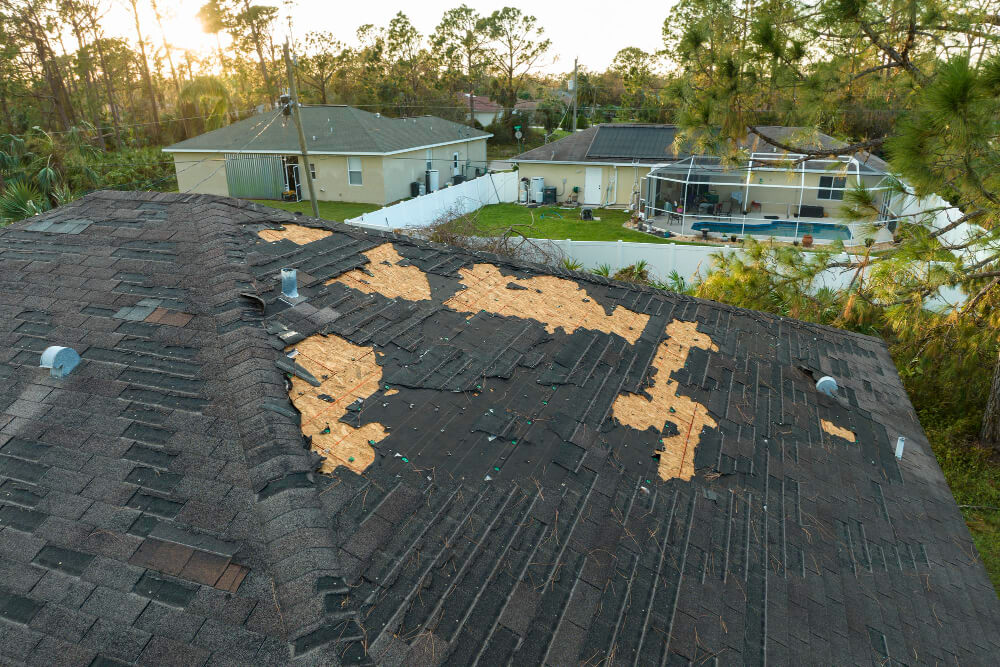Alpharetta, Georgia, known for its beautiful suburban landscape, is no stranger to the wrath of severe weather conditions. When a storm strikes and leaves a trail of destruction in its wake, it’s not just the physical damage that homeowners have to contend with. The emotional toll can be overwhelming, and the journey to recovery can be a challenging one. In this comprehensive guide, we will explore the profound emotional impact of storm damage on homeowners in Alpharetta, offering insights into coping strategies and the recovery process.
Understanding the Emotional Toll
The Devastation of Storm Damage
Storms can cause a wide range of damages, from minor inconveniences to major destruction. The emotional toll varies depending on the severity of the damage, but common emotional responses include:
Shock and Disbelief
Homeowners may initially struggle to accept the extent of the damage, leading to feelings of shock and disbelief. The fear of future storms and concerns about personal safety can be overwhelming, leading to anxiety. Many homeowners grieve the loss of treasured possessions and the disruption of their daily lives. Dealing with insurance claims, contractors, and the rebuilding process can lead to frustration and anger.
Community and Support
One significant aspect of coping with storm damage is the sense of community and support that often emerges in the aftermath. Neighbors, local organizations, and emergency services come together to provide assistance and comfort. This support network can significantly alleviate the emotional burden.
Coping Strategies
Prioritizing Emotional Well-Being
Emotional recovery is as important as physical recovery. Here are some coping strategies to help homeowners deal with the emotional impact of storm damage:
Acknowledge Your Emotions
It’s essential to recognize and accept your feelings, even if they are negative. Give yourself permission to grieve and express your emotions. Reach out to friends, family, and neighbors for emotional support. Sharing your feelings and experiences can be therapeutic. If the emotional toll is overwhelming and affecting your daily life, consider speaking to a therapist or counselor who specializes in trauma and disaster recovery. Take care of your physical and emotional well-being by getting adequate rest, eating well, and engaging in activities that bring you joy.
Document and Assess
Assessing the damage and documenting it is a crucial step in the recovery process. It allows homeowners to gain a sense of control and initiate the restoration of their homes. Here’s how to approach it:
1. Safety First
Before assessing damage, ensure the safety of your property and the immediate surroundings. Look out for hazards like downed power lines or structural instability.
2. Document the Damage
Take photographs and videos of the damage. These will be invaluable for insurance claims and for assessing the extent of the restoration required.
3. Inventory Your Belongings
Make a detailed inventory of damaged belongings for insurance purposes. Include information such as the item’s value, purchase date, and condition.
The Recovery Process
Insurance Claims
Filing an insurance claim is a critical part of the recovery process. Homeowners should be prepared and informed to ensure a smooth and fair claims process:
1. Contact Your Insurance Provider
Notify your insurance company as soon as possible and provide them with the necessary documentation, such as photographs, videos, and inventory lists. Familiarize yourself with the details of your insurance policy, including coverage limits, deductibles, and the claims process.
2. Get Multiple Estimates
When seeking repairs or restoration services, it’s wise to obtain multiple estimates from reputable contractors to ensure a fair assessment of the damage.
Rebuilding and Restoration
The rebuilding and restoration phase is where homeowners can start to reclaim their sense of normalcy. Here are the key steps to consider:
1. Select a Reputable Contractor
Choose a reliable contractor with experience in storm damage restoration. Check references, licenses, and insurance. Ensure that any structural or safety issues are addressed first. This includes fixing damaged roofs, windows, and any other immediate threats.
2. Rebuilding and Repair:
Work with your contractor to create a comprehensive plan for rebuilding and repair. This may include repairing or replacing damaged walls, flooring, and electrical systems.
3. Make Design Choices:
While restoring your home, take the opportunity to make design choices that reflect your preferences. This can help in the healing process.
Resilience and Preparedness
After experiencing storm damage, homeowners often become more conscious of the importance of preparedness and resilience. Consider the following steps for the future:
1. Emergency Preparedness:
Develop or update your family’s emergency plan, including communication, evacuation, and shelter options.
2. Invest in Resilience:
Explore ways to make your home more resilient to future storms. This may involve reinforcing roofs, upgrading windows, or elevating your property.
3. Community Involvement:
Engage with your local community and participate in initiatives related to disaster preparedness and response.
Reclaiming Your Emotional Well-Being
The journey of emotional recovery can be a long one, but with time, support, and self-compassion, homeowners in Alpharetta can regain their emotional well-being. Here are some additional steps:
1. Celebrate Small Victories:
Acknowledge and celebrate each step of progress in your home’s recovery. These victories can boost your emotional resilience.
2. Create a Positive Environment:
As you rebuild, consider design elements and decor that uplift your spirits and create a positive atmosphere.
3. Mental Resilience:
Practice mindfulness and resilience-building techniques to help you navigate emotional challenges.
Conclusion
Storm damage can have a profound emotional impact on homeowners in Alpharetta, disrupting their lives and causing significant distress. While the path to recovery may be challenging, it’s important to remember that emotional healing is just as essential as physical restoration. Acknowledging and addressing the emotional toll, seeking support, and following the necessary steps for recovery can help homeowners regain a sense of control and hope. Ultimately, the experience of overcoming storm damage can foster resilience and preparedness for the future, enabling homeowners to face any challenges that may come their way with strength and determination.
In times of storm damage, Perimeter Roofing in Alpharetta, GA extends a supportive hand, offering not only expert restoration services but also understanding the emotional impact on homeowners. With a compassionate approach, they guide clients through the recovery process, providing top-notch residential and commercial roofing solutions that ensure both structural integrity and peace of mind. Perimeter Roofing Alpharetta’s commitment goes beyond repairs, aiming to restore not just homes but also a sense of security and comfort for homeowners in the aftermath of storms.






